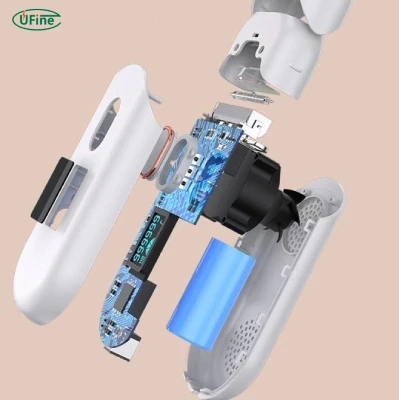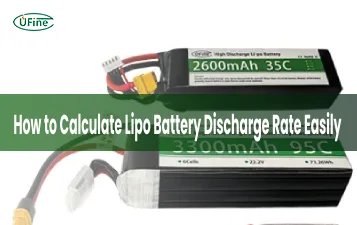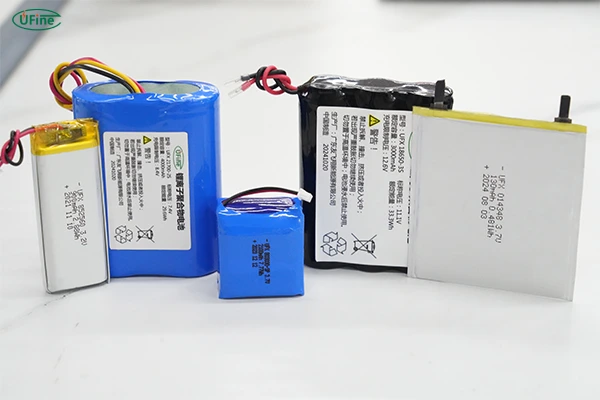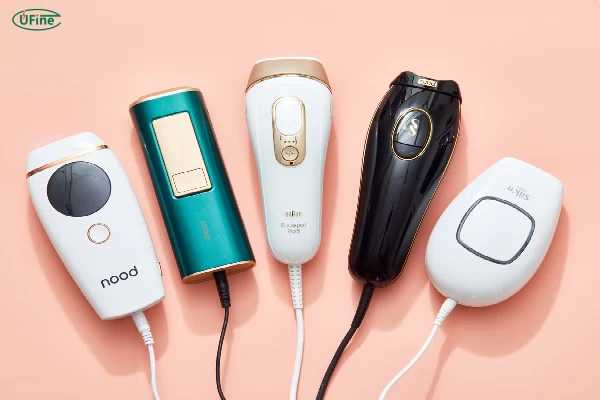In the beauty tech world, IPL (Intense Pulsed Light) devices have become a must-have. Whether for permanent hair reduction or skin rejuvenation, these handheld tools promise professional-level results at home. But there’s one thing many users overlook—the IPL device battery.
Yes, the battery. It’s not flashy, but it’s absolutely vital.
The battery is the heart of your IPL device. It powers the high-energy flashes, keeps the device running consistently, and ensures safety during treatments. When it underperforms, your results suffer. And if it fails? Your device is practically useless.
So let’s take a deeper look at the technology behind IPL device batteries—how they work, what affects their performance, how you can maintain them, and why choosing the right battery supplier matters more than you think.
Part 1. Why is the battery so critical in IPL devices?
Every time you press that flash button, your IPL device emits a burst of intense light. That burst needs a sudden, high-energy output, which only a well-performing battery can deliver. If the battery is weak or aging, you’ll notice it immediately: slower flashes, weaker light, and uneven coverage.

A strong battery ensures:
- Consistent light intensity with every pulse
- Smooth treatment without interruptions
- Lower risk of device overheating or malfunctioning
This is why manufacturers invest heavily in battery technology—and why you should care about what’s inside your IPL device.
Part 2. What type of battery is used in IPL devices?
The majority of modern IPL devices use rechargeable lithium-ion batteries—and for good reason. Lithium-ion cells are compact, have a high energy density, and recharge quickly. These traits are perfect for a device that needs to be both powerful and portable.
More advanced or professional-grade IPL systems may even use lithium polymer batteries for slimmer design or LiFePO4 (Lithium Iron Phosphate) batteries for extra stability and safety.
That’s where Ufine Battery, a trusted Chinese lithium battery manufacturer, comes in. Ufine specializes in supplying custom lithium polymer, LiFePO4, and cylindrical batteries—tailored to meet the power, size, and safety needs of modern IPL devices. Whether you need a high-capacity cell or an ultra-thin pack, Ufine can help you design a battery that fits your device perfectly.
Contact Ufine Battery today to discuss your custom lithium battery needs.
Part 3. How Battery Quality Affects IPL Results
Not all batteries are created equal. Poor-quality cells can’t deliver enough energy for the intense flashes needed in IPL. This can lead to:
- Weaker hair removal results
- Incomplete treatment areas
- Skin irritation or inconsistent power delivery
Think of it like this: a high-end IPL device with a weak battery is like a sports car with a cheap engine. It just won’t perform.
A well-made battery ensures your device delivers strong, uniform energy every time. That’s essential if you want visible, lasting results.
Part 4. Cordless vs. corded: Which power option is better?
Cordless IPL devices are convenient. You can use them anywhere, anytime—no outlet needed. However, this freedom comes at a cost.
Battery-powered models usually:
- Require regular charging
- Offer fewer flashes per session
- May lose strength over time
Corded models, while less mobile, provide uninterrupted power, making them ideal for long or full-body treatments.
With the right battery—like a high-rate lithium-ion pack from Ufine Battery—cordless models can now compete with corded ones. Advanced battery packs can offer up to 700 flashes per charge, lasting multiple sessions without needing a recharge.
Part 5. Buying a good IPL battery: 7 key
1. Battery Chemistry
The most common chemistries in IPL devices are lithium-ion (Li-ion) and lithium polymer (Li-Po). Li-ion offers high energy density, while Li-Po allows for more flexible shapes and thinner builds. For added safety, LiFePO4 (lithium iron phosphate) is also gaining popularity due to its excellent thermal stability.
2. Energy Density
This refers to how much energy the battery can store in a compact size. Higher energy density means longer usage time between charges. For IPL devices, this ensures users can complete more flashes or sessions per charge. Look for batteries that offer high mAh (milliamp-hour) ratings relative to size.
3. Discharge Rate (C-Rate)
IPL devices need short bursts of high energy to power the flash. Batteries with a high discharge rate (also known as C-rate) can handle these demands. A low C-rate battery may cause underperformance or device lag. Ufine specializes in high-rate lithium batteries that are ideal for pulse-based devices like IPL units.
4. Size and Form Factor
The battery must fit the design of the IPL device without making it bulky or heavy. Some applications require ultra-thin or cylindrical batteries, while others need flexible custom shapes. Ufine Battery supports full customization of dimensions, voltage, and cell configuration to fit the device perfectly.
5. Charge Cycles and Longevity
Every battery has a limited number of full charge-discharge cycles. For lithium batteries, a typical lifespan is 300 to 500 cycles. Choosing higher-quality cells ensures longer life and more consistent performance over time. Ask about certified cycle life and expected degradation rate before buying.
6. Safety Features
Look for batteries with built-in protection circuits: overcharge, over-discharge, over-current, and short-circuit protection. Safety is non-negotiable, especially when the device operates close to the skin. Ufine integrates multi-layer safety management into its battery packs to reduce risks during use.
7. Manufacturer Reliability
Finally, where the battery comes from matters. A trusted manufacturer ensures consistent quality, proper testing, and compliance with safety standards. Ufine Battery is a leading Chinese lithium battery manufacturer, offering tailored solutions for IPL devices, including OEM and ODM services. They support brands across beauty tech, medical, and industrial sectors with certified and tested battery packs.
Part 6. Signs your IPL battery needs replacing
Batteries don’t last forever. Over time, they degrade and lose capacity.
Watch out for these signs:
- The device dies faster than usual
- It takes longer to charge
- Flashing becomes weak or delayed
- The device feels hotter during use
Most lithium-ion batteries offer 300–500 full charge cycles. After that, their performance begins to drop significantly.
If you’re a manufacturer or business looking for replacement solutions, Ufine Battery can provide custom replacement packs to extend your product lifecycle and customer satisfaction.
Part 7. How to extend the life of your IPL device battery
You can’t stop battery aging—but you can slow it down.
Here’s how:
- Don’t let the battery drain completely
- Unplug after full charge
- Avoid using the device while charging
- Keep the device in a cool, dry place
- Use it regularly, not just once every few months
Also, be sure to use the original charger provided by the brand. Cheap alternatives can damage internal circuits and reduce battery life.
Part 8. Battery safety
IPL devices generate heat during use. Add a stressed battery into the mix, and safety becomes a concern.
Here’s what can go wrong:
- Overheating
- Swelling
- Internal short circuit
- Fire risk (in extreme cases)
That’s why safety-certified lithium cells, like those made by Ufine Battery, include overcharge protection, thermal control, and short-circuit protection—ensuring your IPL device is not only effective but safe to use.
Part 9. Can You replace the battery in your IPL device?
The answer depends on your device.
Many IPL units have sealed battery compartments, meaning they’re not designed to be user-replaceable. But that doesn’t mean you’re out of options.
Manufacturers or resellers can often work with battery suppliers like Ufine Battery to develop custom-fit replacement battery packs—especially for larger product lines or private-label brands.
If you’re an IPL brand looking to extend your product’s life and value, consider partnering with Ufine to develop serviceable, long-lasting battery solutions.
Part 10. Charging time: What’s normal and what’s not?
A typical lithium-ion IPL device charges fully in 1.5 to 2.5 hours. Fast-charging models might do it in less than 60 minutes.
If your device suddenly takes 4+ hours to charge—or refuses to hold a charge—it’s likely time for a battery check.
Devices using Ufine’s high-efficiency cells can be optimized for fast, safe charging without degrading battery health over time. This means a better experience for the user and fewer support calls for manufacturers.
Part 11. Final thoughts
The IPL device battery is not just a power source—it’s a core part of how the device performs. From session length to skin safety, everything depends on the quality and design of the battery inside.
Whether you’re a consumer or a product developer, understanding your battery helps you make smarter decisions. And when you need a battery that fits your specific needs—whether it’s compact, high-rate, or temperature-resistant—Ufine Battery is here to help.
Related Tags:
More Articles

LiPo Battery Discharge Rate Guide & Calculation Tips
Understand LiPo battery discharge rates, C-ratings, and how to calculate max current. Essential guide for RC, drones, and electronics users.
High‑Capacity 3S LiPo Batteries: 5000 mAh vs. 10000 mAh
Compare 3S LiPo 5000mAh vs 10000mAh batteries by weight, power, and use. Find the best fit for your drone, RC car, or boat setup.
Top 5 Applications for Small 3S LiPo Batteries
Small 3S LiPo batteries power drones, RC gear, wearables, and robotics with high energy and low weight. Making them ideal for compact electronics projects.
Building and Charging Your Own 3S LiPo Pack: A Step‑by‑Step Guide
Learn how to build, balance, and charge a 3S LiPo battery pack safely at home with this complete DIY guide for hobbyists and beginners.
How to Choose the Right LiPo Battery Plug Type?
Discover the best LiPo battery plug types, how to choose them, and expert tips for safe usage, soldering, and maintenance.





